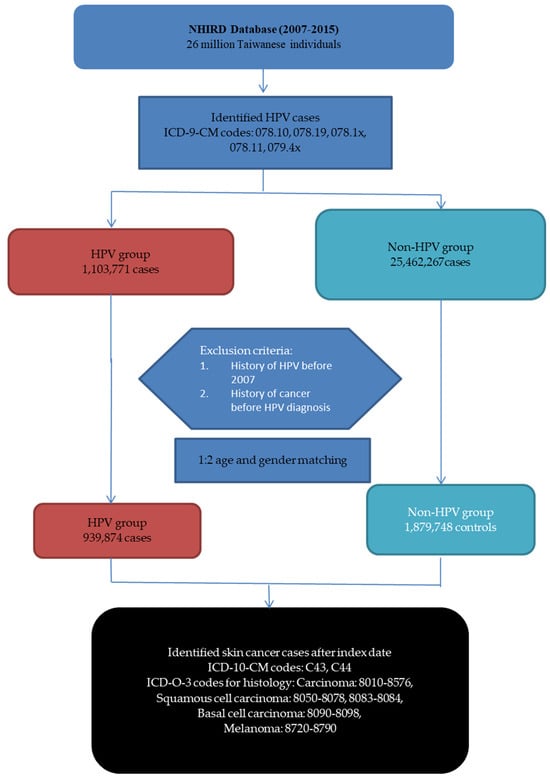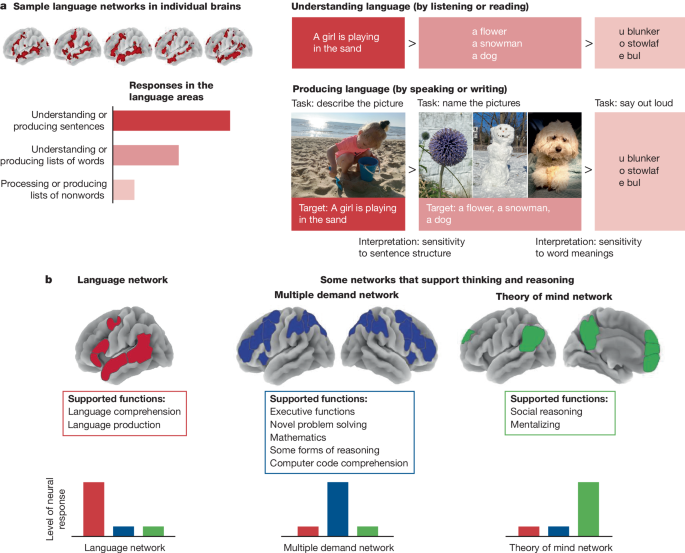- 1.98K Posts
- 77 Comments

 2·6 months ago
2·6 months agoAI: The journal Nature reports that on March 16, 2024, the first pig kidney transplant into a human took place. The recipient was 62-year-old Richard Sleiman with end-stage renal failure. The transplant surgeon who performed the operation reports that the patient’s recovery is going well. The kidney was taken from a miniature pig with a record 69 genomic changes, which were aimed at reducing the likelihood of transplant rejection and the risk of the recipient becoming infected with viruses hiding in the organ.
Once surgeons restored blood flow to the pig’s transplanted organ, it turned pink and started producing urine, a sign of a successful transplant. Another indicator of kidney health is your creatinine level. A high level indicates that the kidneys are not doing a good job of filtering waste. Before the transplant, Sleiman’s creatinine level was 10 milligrams per deciliter, but by the fourth day it had dropped to 2.4. These figures are still almost twice the norm, but there is hope that a decrease to normal levels will soon occur.
This case shows that, at least in the short term, these organs are safe and function as intended. The company that produces genetically modified pigs is currently in talks with the FDA about planning clinical trials for the transplantation of pig kidneys, as well as a pig liver that will be connected to the recipient from outside. The operation also brings doctors closer to eliminating the shortage of vital human organs by using animal organs. In the United States alone, almost 90,000 people are waiting for a kidney transplant, and more than 3,000 people die each year without receiving a transplant. Despite the fact that the level of organ donation has increased significantly, the problem of acute organ shortage is still relevant.
Sleiman’s newest kidney came from a pig that had undergone CRISPR-Cas9 genome editing by eGenesis scientists. Monkeys called cynomolgus macaques that received pig organs with the same genomic changes survived for months and even years. It is hoped that Sleiman’s xenotransplanted kidney will live as long or even longer. The organ was further refined with humans rather than apes in mind. The changes included deleting three genes that promote the production of three sugars on the surface of pig cells. The human immune system attacks cells carrying these three sugars, perceiving them as a sign of a foreign invader. Seven genes that produce human proteins were added to prevent rejection.
Another 59 genetic changes were made to inactivate viruses embedded in the pig genome. These changes are aimed at eliminating the risk of viruses activating when they enter the human body. So far, researchers have not encountered this in transplantation into living people, clinically dead people, or nonhuman primates. But some laboratory experiments have shown that these viruses can be transmitted from pig tissue into cells of humans and mice with weakened immune systems.
Despite the fact that not much time has passed since Sleiman’s operation, the first transplant of a pig kidney into a human gives transplantologists great hope that the shortage of donor organs can be ended. However, it is worth waiting and watching how the first transplanted organ will behave, and how the further history of Richard Sleiman will develop.

 11·6 months ago
11·6 months agoAI: It is a well-known fact that the heritability of IQ increases with age. While children live with their parents, their parents influence their IQ quite noticeably; more than a third of the variance in IQ is explained by the environment created by the parents. However, as you grow older, there is practically nothing left of external influence on IQ. By the age of seventy, 70-80% of IQ is genes.
Interestingly, with character everything is exactly the opposite. In childhood, most of the character is genes, but the older a person gets, the more influence of the environment is noticeable in the character. Character is much more flexible than IQ.

 7·6 months ago
7·6 months agoAI: Scientists from Columbia University have discovered that the brain plays an important role in controlling the immune system. In a study in mice, they found that the brain can detect inflammation and modulate the immune response, boosting or suppressing it as needed. This discovery could lead to the development of new treatments for immune-related diseases such as rheumatoid arthritis, multiple sclerosis and inflammatory bowel disease. In addition, it may help create new approaches to treat acute inflammatory conditions, such as severe immune reactions due to viral infections.

 2·6 months ago
2·6 months agoAI: In April 2024, record heat was recorded across South and Southeast Asia, leading to widespread illness, school closures and economic disruption. The heat has caused many deaths and also has a negative impact on education and healthcare. The main causes of the heat wave are plant and soil water deficiency, urban heat core, El Niño and global warming. To overcome this crisis, urgent adaptation measures are needed, such as heat-related planning that takes into account local climate, public health and socio-economic conditions. Working to reduce greenhouse gas emissions is also important.

 1·6 months ago
1·6 months agoAI: The author of the article argues that the world is still unipolar, despite the fact that some scientists claim that it has become multipolar. He believes that measures of economic and demographic power do not adequately reflect the real distribution of power in the world. What really matters is military power and the ability of states to force other states to act as they want. The author provides data on the size of various countries’ armed forces and the cost per soldier to prove that the United States continues to dominate in this regard. He also notes that China has great potential to increase its power, but has not yet reached the level of the United States. Moreover, the author doubts that other regional powers will be able to fill the empty polar spots.

 3·6 months ago
3·6 months agoAI: Brain research on reading code and language has revealed differences in cognitive processes between the two tasks. Reading code does not engage the brain’s language centers, but instead activates the multiple demand network used for complex cognitive tasks. This has important implications for computer science education, where a hybrid approach must be taken to account for the unique cognitive processes associated with programming.

 2·7 months ago
2·7 months agoAI: The article discusses the crisis of democracy and the uncertainty of the future in the modern world.
• White views the future as a political idea that has passed through various historical stages.
• He views rational calculation as a useful case study, but notes its limitations.
• White explains that belief in the stability of people’s preferences underestimates the value of the political process to change them.
• It suggests reimagining the future and emphasizes the importance of political imagination.
• White diagnoses Western democracy as a system that has exhausted the political imagination.
• He discusses the cultural factors that have caused the depletion of political imagination.
• The vanishing future is the most important element of the current crisis of democracy, but overcoming it requires not only strengthening democracy, but also asking the right questions.

 8·7 months ago
8·7 months agoAI: The author described his experience using Spotify’s new DJ feature, which uses artificial intelligence to create personalized playlists. He noticed that his musical preferences had remained virtually unchanged over the past ten years, and began researching the phenomenon of musical paralysis and the science of sound preferences. Research results have shown that ear openness usually peaks at age 24, and after that age it usually declines. 31 is considered the age when musical tastes begin to stagnate and parents stray from the mainstream faster than other groups in the population. The author admits that he is on the cusp of becoming a musical dinosaur, and his musical preferences are becoming more specialized as he ages.

 41·7 months ago
41·7 months agoAI: A new study published in May 2023 claims that the Moon’s inner core is actually a solid ball with a density similar to that of iron. The results contradict the traditional idea that the lunar core is made of liquid. The findings also challenge the generally accepted theory of how the Moon’s magnetic field formed. Scientists hope that new discoveries will help them better understand the history of the Moon and the solar system as a whole.

 2·7 months ago
2·7 months agoAI: Currently, Europa, one of three worlds in our solar system, is thought to have three ingredients for habitability: liquid water, energy, and the chemical building blocks for life. However, it is unclear whether the Moon’s ice-covered sea could support life. Some researchers believe that the geological activity of the Moon’s seafloor and its ability to support life may be at the heart of the Moon’s habitability problem. Computer simulations of Europa’s seafloor were carried out, but the results showed that modern seafloor volcanism was unlikely, making Europa’s ocean uninhabitable. Although Europe is uninhabitable today, this does not mean that it was not habitable in the past. NASA’s Europa Clipper spacecraft, which launched in October, may confirm the existence of an ocean on Europa, although it will not be able to resolve the controversy surrounding seafloor activity.

 11·7 months ago
11·7 months agoAI: Evolutionary anthropologist Dr. Hermann Pontzer argues that exercise may not be an effective way to lose weight because the body adapts and reduces energy use in other areas. However, exercise can have health benefits because it diverts excess energy from potentially harmful processes in the body, such as inflammation and stress. Research shows that a person cannot exceed their metabolic budget, and exercise changes the way energy is used, not how much energy is used. Additionally, research from the Hadza group shows that even vigorous movement does not significantly increase calorie burning. This may be because the body strives to maintain the same frame of limited energy, which includes various activities such as immunity and stress response. Thus, exercise can be beneficial to health because it allows the body to expend excess energy, keeping the immune system and stress responses in balance.

 11·9 months ago
11·9 months ago00:01:14 Conversation about John Kennedy and the CIA
• Guest, Ray McGovern, served in the CIA from 1963 to 1990, first as a greenhorn and then as an analyst.• He claims that the CIA did not know about plans to overthrow Fidel Castro, and Kennedy was deceived.
00:10:12 Conspiracy theory and the book “Kennedy and the Unspeakable”
• McGovern mentions the book "Kennedy and the Unspeakable", written by James Douglas, who dedicated it to Vince Solandria and Marty Schatz.• The book claims that Kennedy was assassinated with the help of the CIA and the Joint Chiefs of Staff.
• McGovern says that most Americans believe in this theory, but do not want to know the truth because of its horror.
00:14:34 Discussion of books and conspiracy theories
• Ray McGovern discusses the books he finds credible and their content related to the JFK assassination and the "deep state."• He emphasizes that the Warren Commission was a farce and that most Americans believe in conspiracy theories.
00:24:06 The influence of the “deep state” on elections
• Ray McGovern talks about the influence of the "deep state" on US elections, including election interference and the assassination of the president.• He believes that Americans need to better understand their society and the influence of the “deep state.”
00:26:41 Hunter Biden’s laptop and influence on the election
• Ray McGovern mentions Hunter Biden's laptop and its impact on the 2020 election.• He talks about how Tony Blinken and Mikey Morrell used a laptop to influence the election, and how it was portrayed as a Russian intelligence disinformation operation.
00:28:37 Discussion of election interference
• Discusses the recent scandal involving Hunter Biden's laptop, which allegedly contains information about Russian interference in the 2016 election.• Former US intelligence director says laptop contains no signs of Russian intelligence.
00:36:32 Ukraine and the coup d’etat
• Discusses the 2014 coup d'etat in Ukraine, in which the US was accused of involvement.• Former CIA Director Bill Burns says Russia warned the US about the consequences of Ukraine and Georgia joining NATO, but the US ignored the warning.
00:40:52 The role of the United States in Ukraine
• Discusses how the US controls the situation in Ukraine and how Putin may have felt the coup attempt failed.• The new Ukrainian government has announced its intention to join NATO, which raises concerns among Russia.
00:41:50 Putin and his plans
• Putin says Russia cannot allow Crimea to come under NATO control.• Putin says people in Crimea want to join Russia.
00:44:33 Minsk agreement and negotiations
• Ukraine, Russia and the United States are negotiating a ceasefire and autonomy for Donetsk and Lugansk.• Germany and France admit that the Minsk agreement has not been implemented.
00:50:04 Putin and Biden
• Putin demands a personal commitment from Biden not to station offensive strike missiles in Ukraine.• Biden refuses to discuss the issue, leading to Russia’s invasion of Ukraine.
00:54:19 Implications and conclusions
• The US could have prevented the conflict, but did not.• The US is strengthening the Russia-China alliance, which could lead to disaster in the future.
00:56:07 Discussion of US strategy
• Discussion of how the US can be blind in its actions and how this can lead to negative consequences.• Mention that the US considers itself exceptional and indispensable, which can lead to poor decisions.
01:03:04 Comparison with the past
• Ray says the situation is worse than in 1963, when the US controlled the media, Congress and other institutions.• The example of George W. Bush and his initiation of the Iraq War based on fabricated intelligence is mentioned.
01:06:46 Conclusion
• Ray expresses gratitude for the invitation to the show and admiration for his efforts to restore sanity to society.• A call to restore sanity and responsibility in society.

 1·9 months ago
1·9 months agoKEY TAKEAWAYS In a recent study, researchers surveyed 3,000 people living in poor, small-scale societies about their life satisfaction. The results found that these people’s life satisfaction is on par with people who live in the wealthiest countries. One potential reason why simple joys such as social interaction and experiencing nature play an outsized role in driving life satisfaction in small-scale communities is that many of these societies aren’t heavily monetized.

 5·9 months ago
5·9 months agoAI: Astronomers have discovered a Radcliffe wave, the largest coherent structure in our galaxy, made up of star-forming clouds and stretching over 9,000 light-years. A new paper in the journal Nature reports that this structure oscillates as it rises and falls above the plane of the galaxy. This phenomenon is called a traveling wave. It is believed that the solar system went through a Radcliffe wave about 13 million years ago, which may have affected life on Earth due to an increased number of exploding stars in these regions. The research was made possible by data from the European Space Agency’s Gaia spacecraft, which helped create an accurate 3D map of the stars and gas in our sector of the galaxy. The Radcliffe wave may be the basis of the spiral arm of our galaxy closest to the Sun. The cause of the wave’s oscillations could be a collision with a dwarf galaxy or a sequence of supernova stellar explosions.













https://gwern.net/doc/psychology/linguistics/2024-fedorenko.pdf